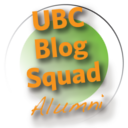Faculty-bashing. What is up with that?
The stereotypes we’ve all heard: Arts is a useless degree. Commerce students are all stuck-up and pretentious. Engineers can’t write to save their lives. I won’t go on. This strange, knee-jerk need to associate ‘different’ with ‘dumb’.
Even though difference is how someone makes the music that someone else enjoys while spending long hours in the office at night, designing a building that someone else is going to construct for someone else to dispense the medication that someone else prescribed thanks to the education they got from someone else who cared enough to share — do you see what I’m saying yet? There is value in what each of us does; measuring the lack of value of what I do by the value of what you do misses the point completely.
Not to mention that we all know individuals who regularly defy these artificial categories we try to box them in: Arts kids who like maths (le gasp), Science kids who express themselves artistically, Commerce kids who have souls (no, really).
To be fair, most people I know don’t throw these stereotypes around. But every once in a while, I’ll meet someone new who will say, ‘So, what are you majoring in?’ and when I tell them, they give me that look which says, ‘Why on earth would you want to do that? You foolish person destined for destitution and failure.’ Which in turn quickly wraps up our very short acquaintance.
Something’s not right about that.
Something else that isn’t right: I just realised that despite my whinging, I rarely ask someone else what they’re learning — really ask. Granted, when chatting with friends, most of us don’t want to talk seriously about school out of class time, but I am still mildly horrified at how I’ve been bumbling along for the last four years without taking the opportunity to discover a wealth of learning in the form of my peers. All of us are busy getting an education and I don’t know what other people’s educations mean.
So I really want to know: What is one of the most interesting things you learned this past week? Why do you find it interesting and/or important?
One of the things that has been bugging me over the last few months is my growing realisation that while I take First Nations Studies classes that unpack all kinds of issues that indigenous peoples face, and while I feel immensely angry and frustrated while in class or doing my readings, at the end of the day, I can leave the classroom and these problems behind me, and an indigenous person can’t. What is academic fodder for me is someone else’s lived reality.
This raises deeply problematic questions for me, such as, What does it mean, then, to stand in solidarity with someone else if I can walk away? What are the ethics of me learning ‘about’ other people through an academic institution? What do I do with what I’ve learned instead of simply compartmentalising it as learning that I don’t do anything else with?
I don’t know the answers to any of these questions, though they are what I think about.
(I want to talk about my First Nations classes all the time, but this, too, is problematic for me, because the more I learn, the more I feel the weight of my ignorance, which fuels my anxiety of misrepresenting something incredibly important. There is so much background knowledge to explain, I don’t know how to do it, and then there’s also the question of whether I should be the one talking about it to begin with, and whether this is the appropriate avenue. See: questions raised above.)
On another note, What I Learned in Class Today is a project I discovered last year that discusses the difficulty of talking about aboriginal issues in UBC classrooms. The video is twenty minutes long, but well worth the time, I think.


One response to “What I Learned This Week”